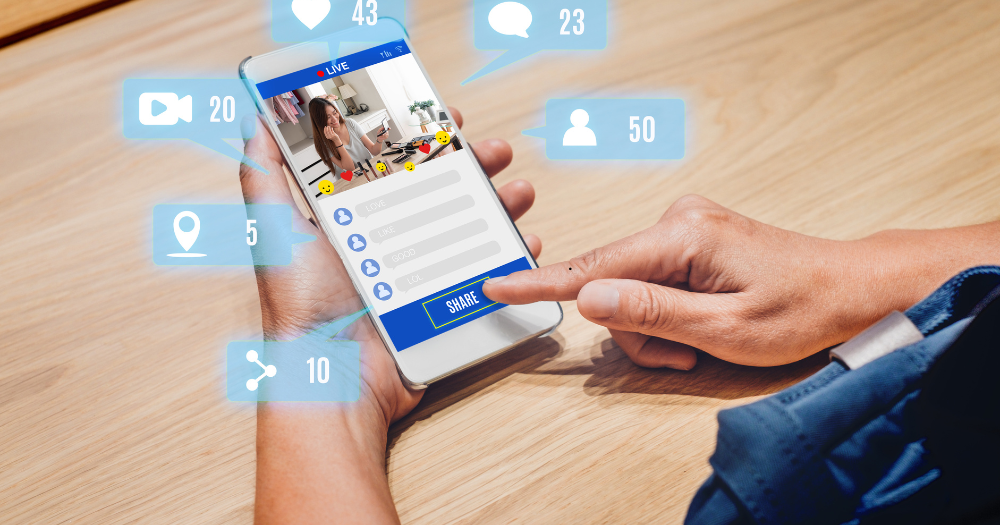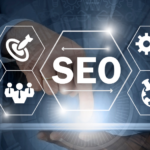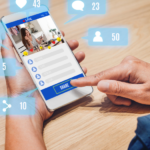
B2B influencer marketing strategies have reached a level of maturity and sophistication once reserved only for B2C brands. In 2026, the landscape has shifted: B2B companies are investing more, building strategic partnerships, relying on artificial intelligence, and tapping deeper into niche networks to achieve scalable outcomes. This guide delivers the most up-to-date, SEO-optimized insight, covering trends, tools, and the unique dynamics driving B2B influencer marketing strategies for modern organizations.
What Is B2B Influencer Marketing?
B2B influencer marketing is the intentional process of collaborating with industry experts, thought leaders, and influential professionals to accelerate marketing objectives, build trust, and reach targeted business audiences. Unlike consumer-facing influencer campaigns, B2B influencer marketing strategies are built on deep credibility, expertise, and the ability to sway decision-makers, not just consumers.
Rather than focusing on simple endorsements or product placements, B2B influencer marketing strategies prioritize:
- Long-form, educational content
- Peer-to-peer trust-building
- Lead nurturing through authentic insights
- Industry authority and thought leadership
Why Are B2B Influencer Marketing Strategies So Valuable in 2026?
Building Trust and Authority
Decision-makers are inundated with vendor pitches and product noise. B2B influencer marketing strategies cut through the clutter by leveraging voices industry insiders already trust, dramatically improving credibility and message acceptance.
Increasing Brand Visibility
By partnering with influencers, companies expand their reach to new, often hard-to-reach audiences within key verticals and segments, especially when using micro and niche influencers who hold sway over highly engaged communities.
Driving High-Value Leads
Influencers can provide direct access to networks of senior leaders, engineers, procurement specialists, and executives—bolstering not just quantity but the quality of leads.
Powering Thought Leadership
Aligning with recognized authorities not only boosts brand recognition but positions your executives and solutions at the center of industry-shaping conversations, increasing consideration.
Co-Creating High-Quality Content
Influencers are expert communicators—whether through research, whitepapers, podcasts, webinars, or interactive formats, they elevate your brand’s content and extend its reach.
Fresh B2B Influencer Marketing Trends in 2026
1. The Micro and Niche Influencer Revolution
Rather than chasing mega-stars, brands are working with niche or micro-influencers—who have smaller but more engaged, focused audiences relevant to their offering. These collaborations lead to more authentic relationships and stronger results, especially in highly technical or verticalized fields.
2. Always-On, Long-Term Partnerships
One-off campaigns are giving way to ongoing partnerships, where influencers become genuine brand ambassadors—allowing for more insightful storytelling, regular co-created content, and deeper engagement with target audiences.
3. AI-Powered Influencer Discovery, Selection, and Measurement
AI tools are reshaping every step: selecting the right influencers through audience and engagement analytics, tracking campaign impact in real time, and even flagging ‘fake’ followers for more authentic targeting. Leading B2B influencer marketing strategies use AI-powered platforms to optimize selection, content matching, and ROI.
4. Cross-Channel Integration
B2B influencer marketing is now integrated with SEO, email, Account-Based Marketing (ABM), paid campaigns, and sales enablement—creating unified messaging and a seamless experience for buyers moving through the research and decision journey.
5. Multimedia and Experience-Focused Activations
Top B2B influencer marketing strategies diversify content: including long- and short-form video, podcasts, live virtual summits, LinkedIn events, and even immersive digital forums. This approach meets stakeholders where they are and how they prefer to learn.
6. Data-Driven Personalization and Attribution
Using AI and analytics, B2B influencer marketing teams can now deliver hyper-personalized campaigns and trace conversions across complex B2B funnels—moving far beyond vanity metrics to true ROI measurement.
7. Authenticity and Employee Advocacy
Brands are activating both external influencers and internal experts—encouraging executives, engineers, or customer success leaders to build personal brands alongside external partners, amplifying credibility and trust.
The Foundations of Effective B2B Influencer Marketing Strategies
Define Goals and KPIs
Start by clarifying what you aim to achieve: generating sales-qualified leads, increasing market share in a vertical, growing share of voice, or launching into a new segment. With clear KPIs, you’ll better track ROI and optimize B2B influencer marketing strategies for each funnel stage.
Audience Mapping and Persona Development
Who are your top buying personas? Where do they consume content? What types of influencers do they trust? Map out audience segments and align influencer “fit” based on network, expertise, and platform presence.
Identification and Vetting of Influencers
Go beyond follower counts. Use AI-powered influencer discovery platforms to analyze:
- Engagement rates over time
- Niche relevance
- Audience composition and overlap with your market
- Prior collaboration content and authenticity
- Risk analysis (credibility, brand safety)
Build Long-Term, Value-Based Relationships
Prioritize building real relationships. The best B2B influencer marketing strategies begin with value exchange—inviting influencers to co-create research, participate in webinars, or contribute industry commentary. Contracts should emphasize partnership and even exclusivity, not just transactions.
Integrate with Content and Event Strategies
Influencers should help produce pillar content (e-books, research, webinars, whitepapers) and then repurpose this into short-form social posts, videos, and email campaigns. Successful B2B influencer marketing strategies also use influencers as speakers or hosts at industry events, roundtables, and podcasts.
Measurement and Iterative Optimization
Track engagement, pipeline generation, lead quality, and closed deals. AI platforms can tie influencer activities to bottom-line results, helping marketers double down on what works and adjust quickly when something isn’t resonating.
Essential B2B Influencer Marketing Strategies
1. Co-Creating Insightful, Solution-Focused Content
Develop whitepapers, case studies, or explainers with key opinion leaders addressing real industry pain points. Influencer insights and commentary lend additional credibility and drive higher engagement and sharing.
2. Leveraging LinkedIn and Platform Diversification
With LinkedIn remaining the top B2B networking platform, B2B marketers partner with influencers on LinkedIn Live events, long-form Pulse articles, panel webinars, and influencer-led groups. However, don’t ignore YouTube, X (Twitter), niche industry forums, and even B2B podcasts.
3. Multi-Influencer Collaborations and Roundtables
B2B decisions rarely rest with one person, so campaigns featuring panels or cross-influencer collaborations build consensus, create buzz, and can drive complex solution awareness that speaks to buying committees.
4. Employee Advocacy and Internal Brand Builders
Empower your own subject matter experts to act as influencers, building their voice alongside external partners. Employee-led thought leadership, when combined with influencer endorsements, creates a compelling, multi-layered narrative.
5. Event-Driven Influencer Marketing
Virtual summits, hybrid events, or interactive forums featuring industry influencers drive high engagement, build email lists, and create shareable evergreen content—often delivering rich multimedia assets for future campaigns.
6. Data-Driven Personalization and ROI Tracking
Use AI to segment influencers and audiences, personalize outreach or messaging, and track every stage of engagement, including conversions, net-new opportunities, and influenced deals.
7. Compliance and Trust
Especially in regulated B2B spaces, ensure influencer partnerships meet legal requirements, are disclosed transparently, and uphold your brand’s ethical standards.
Real-World Examples and New Ideas
- Tech SaaS Company: Developed a quarterly B2B influencer roundtable on LinkedIn Live, partnering with engineers, CIOs, and analytics thought leaders. Result: tripled webinar registrations and increased demo requests by 41%.
- Manufacturing Firm: Teamed up with micro-influencers in supply chain management for co-authored research. The study was cited in industry press and used as a lead magnet, leading to a 2x increase in high-value SQLs (Sales Qualified Leads).
- B2B Fintech Startup: Used AI platforms to identify up-and-coming fintech analysts. The campaign featured personalized email sequences, influencer-led explainers, and concluded with influencer-hosted virtual client Q&As, directly influencing six enterprise deals.
Overcoming Challenges in B2B Influencer Marketing Strategies
- Vetting for Authenticity: Use AI-based tools to detect fake followers and confirm an influencer’s real reach and expertise, not just vanity metrics.
- Complex Attribution: Integrate marketing automation and CRM to attribute influence across a typically longer B2B sales cycle.
- Maintaining Long-Term Value: Build relationships based on mutual value, not just transactional campaigns—offering insights, feedback, or access to your own thought leaders.
Opportunities to Differentiate in 2026
- Integrate B2B influencer marketing strategies with ABM campaigns—where micro-influencers help warm target accounts by hosting private, executive discussions.
- Co-create immersive, interactive content (e.g., AR/VR demos, live product walk-throughs) led by trusted industry figures.
- Use AI-powered “network mapping” to uncover hidden influencers within target accounts or buyer committees, opening new doors for outreach.
- Make diversity, equity, and inclusion (DEI) a strategic pillar by working with a broad range of influencer voices.
Conclusion
B2B influencer marketing strategies in 2026 are backed by data, powered by AI, and built on authentic relationships. They are not about following trends, but about creating measurable business impact—delivering trust, accelerating sales cycles, and elevating brands above the noise.
Ready to take your next step? At Brand Designers, we blend creativity, analytics, and deep influencer marketing expertise to help B2B brands achieve sustainable growth. From influencer and thought leader identification to campaign strategy, co-created content, and ROI analytics—we’re your partner for modern B2B influencer marketing strategies.
Contact Brand Designers today to accelerate your brand’s reach, trust, and impact in 2026 and beyond.





